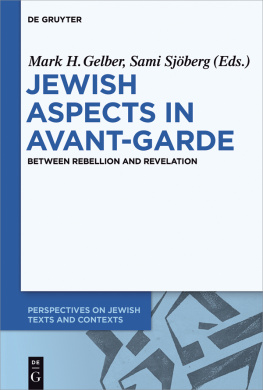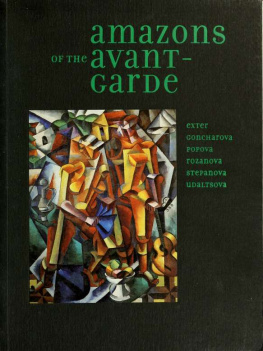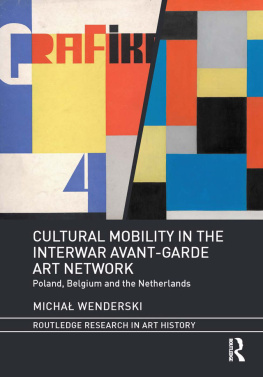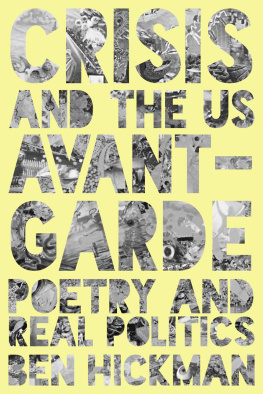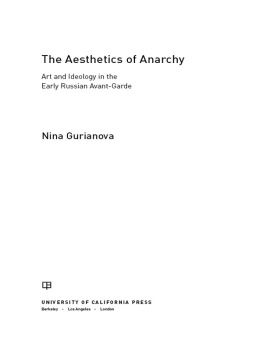AVANT CANADA

AVANT CANADA
Poets, Prophets, Revolutionaries
GREGORY BETTS
and CHRISTIAN BK,
editors


This book has been published with the help of a grant from the Canadian Federation for the Humanities and Social Sciences, through the Awards to Scholarly Publications Program, using funds provided by the Social Sciences and Humanities Research Council of Canada. Wilfrid Laurier University Press acknowledges the support of the Canada Council for the Arts for our publishing program. We acknowledge the financial support of the Government of Canada through the Canada Book Fund for its publishing activities. This work was supported by the Research Support Fund.

LIBRARY AND ARCHIVES CANADA CATALOGUING IN PUBLICATION
Avant Canada : poets, prophets, revolutionaries / Gregory Betts and Christian Bk, editors.
Includes bibliographical references and index.
Issued in print and electronic formats.
ISBN 978-1-77112-352-5 (softcover).ISBN 978-1-77112-354-9 (EPUB).ISBN 978-1-77112-353-2 (PDF)
1. Literature, ExperimentalCanadaHistory and criticism. I. Betts, Gregory, 1975, editor II. Bk, Christian, [1966], editor
PS8061.A93 2018 | C810.911 | C2018-902144-6 C2018-902145-4 |
Cover design by hwstudio.com. Text design by Sandra Friesen.
2019 Wilfrid Laurier University Press
Waterloo, Ontario, Canada
www.wlupress.wlu.ca
This book is printed on FSC certified paper and is certified Ecologo. It contains post-consumer fibre, is processed chlorine free, and is manufactured using biogas energy.
Printed in Canada
Every reasonable effort has been made to acquire permission for copyright material used in this text, and to acknowledge all such indebtedness accurately. Any errors and omissions called to the publishers attention will be corrected in future printings.
No part of this publication may be reproduced, stored in a retrieval system, or transmitted, in any form or by any means, without the prior written consent of the publisher or a licence from the Canadian Copyright Licensing Agency (Access Copyright). For an Access Copyright licence, visit http://www.accesscopyright.ca or call toll free to 1-800-893-5777.
We dedicate this book to the memory of
Dr. Barbara Godard,
a model mentor and an exemplary scholar
of the avant-garde.
Contents
List of Figures
PART I
INTRODUCTION
GREGORY BETTS and CHRISTIAN BK
Time for the Avant-Garde in Canada
We can sit down, like an avant-garde, and ask who we want to be.
Lee Maracle
THE AVANT-GARDE FROM BEFORE YOUR TIME
Avant Canada represents the outcome of a collaboration between two poets, whose friendship over the course of two decades has arisen from a shared desire to promote otherwise neglected writers from the avant-garde community in Canada. After years of convivial dialogues about the status of such a community, the two editors of this volume hope that their readership might enjoy what they themselves have come to love the most about the legacy of CanLitits embryonic, anomalous tradition of deviant writers who, against prudence, decide to break from the orthodox pathways to fame in order to become not so much unseemly to their conventional peers as untimely to their contemporary epoch. This volume constitutes a kind of snapshot, taken at the moment when such a community, in all its diversity, has convened at a social affair, akin to a reunion.
Avant Canada borrows its title from a conference held at Brock University in St. Catharines during November 2014, at a time ripe for both writers and critics from across the country to convene in order to map out the current terrain of the avant-garde in English Canada. While factions of the avant-garde at this summit might have proposed a diversity of hypotheses about the state of the union, most attendees seem to have agreed that the literary future involves a reconciliation with our colonial legacy. Not only must the revolutionary sensibilities of any avant-garde movement aspire to unsettle the discourses that have granted us licence to degrade both the environment and its inhabitants, but the revolutionary sensibilities of such an avant-garde must also aspire to enhance the diversity of its community by attending to the voices of both the ignored and the unheard. The editors hope that this volume contributes to such a mandate.
Avant-garde writing in English Canada has never enjoyed much more than a token degree of prestige among the literati of this country. While Canada has existed, as a nation, for as long as the tradition of the avant-garde itself, the country has perhaps yet to foster a world-class avant-garde movement of its own, although diverse writers from Canada have often contributed original insights to innovations imported from schools elsewhere in the world. When confronting the legacy of the avant-garde in Canada, writers have, at times, felt obliged to contend with a sense of either outdatedness or indebtedness, as if uptaking the newest trends after the oldest moment of their heyday. The failure of any avant-garde writer almost always seems to coincide with this notion of being out of step with the pace of history, arriving on the scene either too soon or too late to feel at ease in the modern milieu.
THE AVANT-GARDE FROM SOMEWHERE ELSE
Renato Poggioli has described the avant-garde as a class of bohemians whose specific agendas may differ, but whose artistic stances have much in common, adopting attitudes that remain agonistic, alienated, neophilic, technical, objective, and difficult, with respect to the conventions of the status quoeach movement aspiring to consummate an alliance between artistry and politics. According to Poggioli, the avant-garde consists of lost generations, The avant-garde, for him, must transit these fashions, inventing itself anew, after each novel agenda becomes a tired clich.
Peter Brger goes on to suggest that the avant-garde aspires to make a kind of art that criticizes the institution of art itself, using shock to call The rejection of every prior style of art for the sake of a social agenda becomes a newer style of art to be copied in the available repertoire of history.
Matei Clinescu even goes so far as to argue that the avant-garde exaggerates these conditions of exhausted decadence to foment what he calls a culture of crisis, The avant-garde aspires to achieve a time beyond itselfa time to which the prefix post- might become attached as a signifier for both the obsolescence of itself and the supersedence of itself. The avant-garde thus becomes the herald of its own demise.
Reginald Shepherd has even suggested that, for poetry, the avant-garde has perhaps entered what he calls a post-avant phase in which the lessons of the avant-garde have become so institutionalized that each poet has become a magpie, who can enjoy the eclecticism of all schools of writing, neutralizing them or synthesizing them (making them either equalized in value or interbred in style), doing so without any sense of either utopian anticipation or elitist renunciation. The avant-garde is thus, for him, no longer untimely in its modern moment (even though his use of the prefix post- might not indicate the foreclosure of every avant-garde, so much as the prefix might indicate an impatience that, despite all efforts to the contrary, we have yet to surpass this momentand thus we must pretend to have done so, long before we have actually produced a more advanced paradigm to replace it).
Next page

